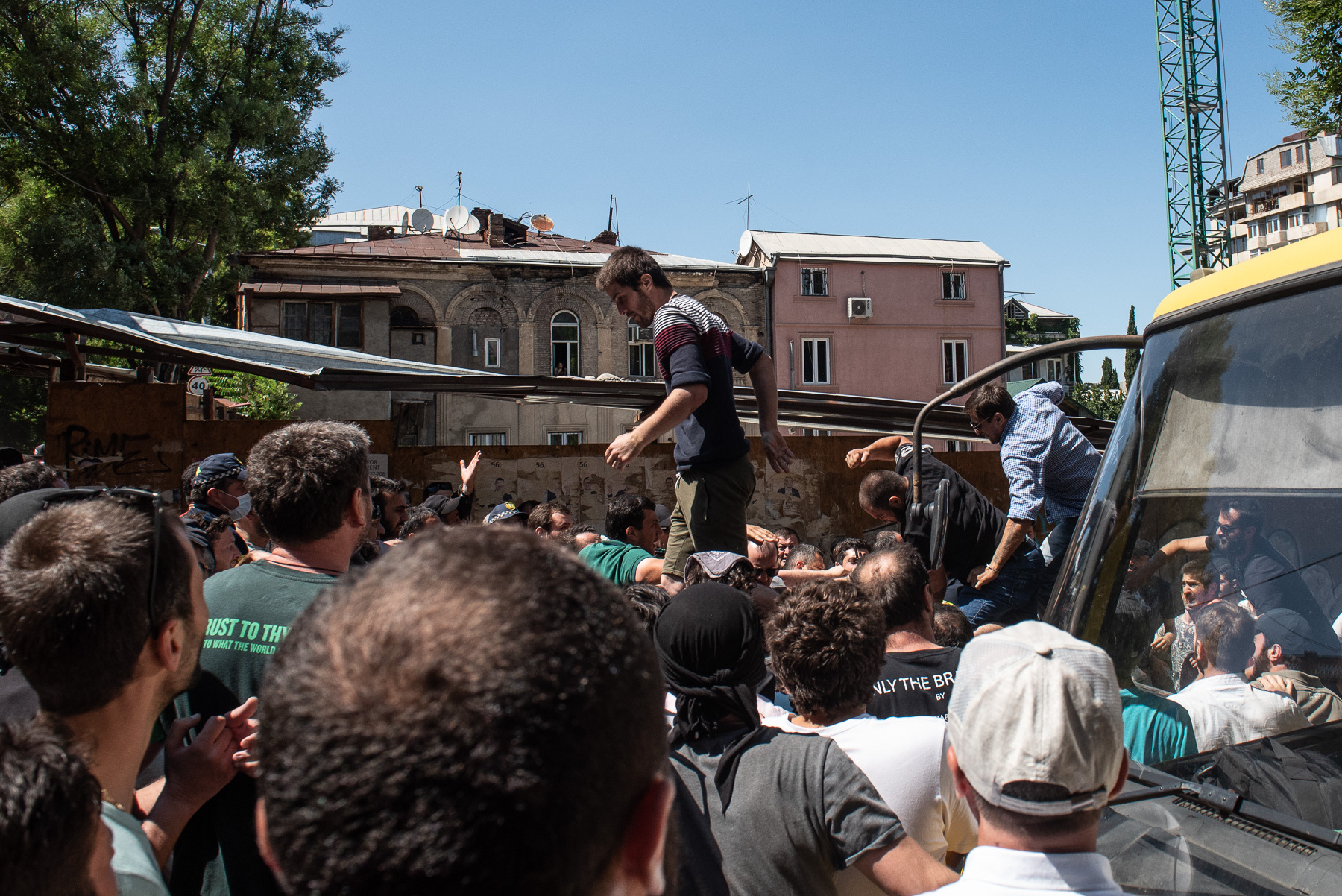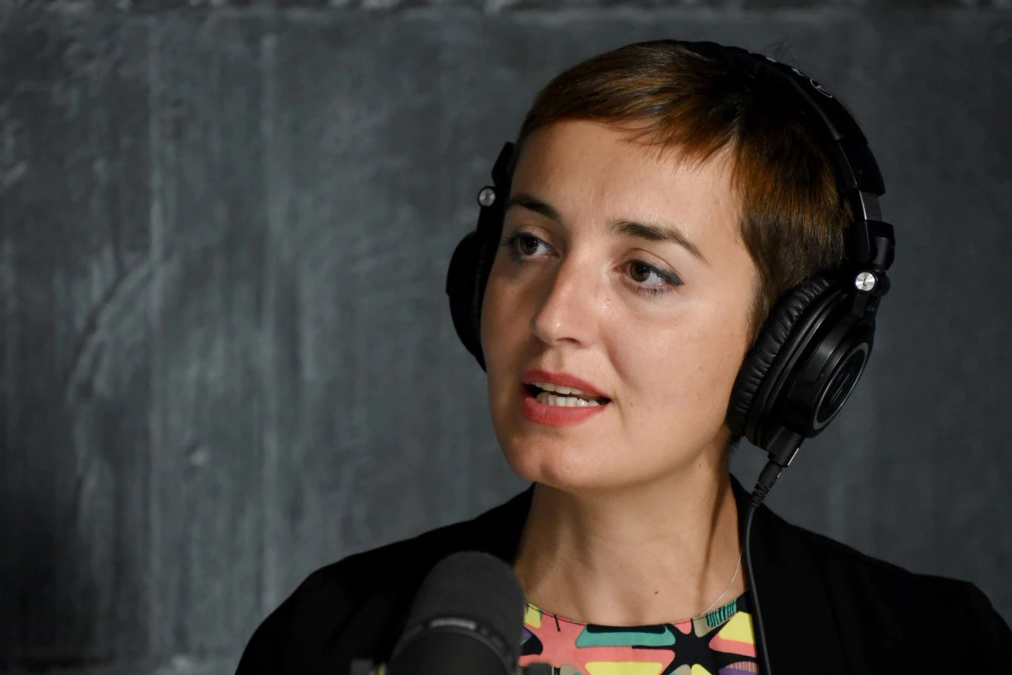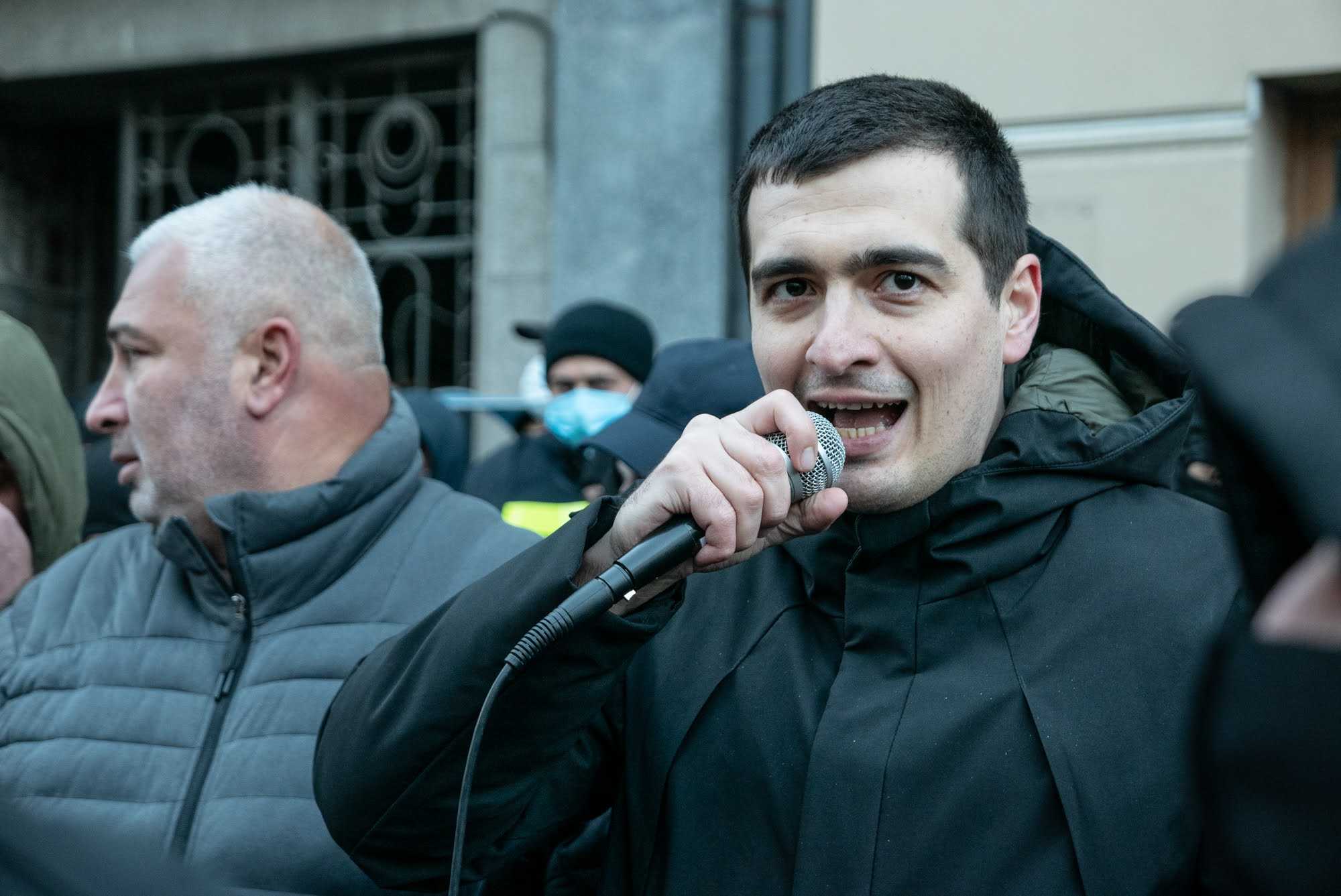
The Georgian National Communications Commission (GNCC) has granted ‘national broadcaster’ status to Alt-Info, obligating all TV providers in the country to provide the channel to subscribers. The far-right extremist group led efforts to organise and coordinate the mob violence against journalists and activists on 5 July.
The Georgian watchdog group Media Rights reported that the state telecommunications regulator’s 9 September decision would come into effect from 15 September.
The move will force TV providers Silknet and Stereo+ to begin airing Alt-Info. Silknet had previously resisted doing so citing ‘technical reasons’, before coming to an agreement with the channel following the GNCC’s decision.
Silknet will join other large TV providers such as Magticom and Akhali Kselebi in broadcasting the channel.
The namesake group behind the Alt-Info channel was largely responsible for mobilising and leading crowds that attacked dozens of journalists covering their anti-Pride protest in central Tbilisi. They also ransacked anti-government tents and tore down the EU flag outside Parliament on 5 July.


Acting in parallel to anti-queer campaigner Guram Palavandishvili and his group, Alt-Info claimed to be responding to a calls from the Georgian Orthodox Church to gether on Rustaveli Avenue to prevent the planned Pride march. While the Church made several appeals against the violence throughout the day, many priests joined the rally with some openly calling for violence or participating in it.
Alt-Info successfully penetrated the TV sets of Georgians in January, soon after Facebook removed most of the accounts associated with them in October last year and deleted more in July.
Besides resorting to messaging platforms and YouTube, and retaining a diminished presence on Facebook, Alt-Info successfully gained a broadcasting license from GNCC in January. This enabled them to launch their cable TV channel that month.
‘Must carry’
Alt-Info advocated for their right to be broadcast based on the successful ‘This Concerns You’ campaign in the late years of rule of President Mikheil Saakashvili and the United National Movement.
On the background of a clampdown on private channels critical of the authorities at the time, the ‘must carry’ principle obliged TV providers to broadcast all channels that had news programming.
‘Must carry is a special public good… and an instrument to support freedom of expression’, Natia Kapanadze, Director of Media Rights said in conversation with OC Media.
Kapanadze underlined that what was crucial in cases like this were for the authorities to respond to cases of organised violence and calls for it, that ‘were made through publicly available channels on 5 and 6 July’.
Kapanadze added that the national regulator missed an opportunity to fully meet their mandate on 9 September and criticised the GNCC’s ‘superficial’ decision not to sanction Alt-Info over their programming during Pride Week and throughout July.

The GNCC did fine the channel ₾2,500 ($800) in April for on-air discriminatory speech and advocating for violence against minors. However, the agency did not issue any fines over their July programmes despite finding them in breach of ‘indecency’ rules.
Kapanadze also criticised the regulator for granting national broadcaster status to Alt-Info without properly checking their financial standing to act in such a capacity.
‘The GNCC tends to be biased, and often, too strict, for instance, against broadcasters with independent editorial policy, which they sanction frequently as we saw last year’.
Kapanadze pointed to the GNCC’s decision against granting Zemo Svaneti Community Organisation and Kvemo Kartli-based Kali da Samkaro (‘woman and the world’) similar national broadcaster licences.
‘The GNCC cited a number of grounds for the refusal, including the absence of finances to meet technological challenges’.
No charges so far
Other leading advocates of media freedom in Georgia, including the Media Development Foundation (MDF) and Georgian Charter of Journalistic Ethics, have similarly been resistant to revisiting the must carry rule. They warned that it could be used against media pluralism.
The right course of action, according to most media advocates in Georgia, would be for investigative and prosecutorial bodies to pursue cases of calls for and acts of violence individually.
Critics of the Georgian authorities, however, have expressed doubts that law enforcement agencies will do so, pointing out that the Georgian Dream government have themselves engaged in similar rhetoric against the media.
[Read more on OC Media: Georgian Dream’s anti-media crusade continues]
Konstantine Morgoshia, the founder and an anchor on Alt-Info, personally called on and led crowds of hundreds to the offices of liberal group the Shame Movement, resulting in an attack on camera operator Aleksandre Lashkarava who six days later passed away in still unclear circumstances.
In subsequent broadcasts, Alt-Info leaders justified their actions while Morgoshia vowed to ‘completely remove’ liberal media from the Georgian broadcasting system if they came to power.

On 1 September, investigative media group ifact.ge identified 36 individuals from Alt-Info, also going by the name Alternative Georgia, possibly involved in the July violence.
Despite being briefly detained and questioned and having their homes searched in mid-July, Alt-Info’s leaders, including Morgoshia, have not faced charges. Neither did Alt-Info’s Zurab Makharadze, who Public Defender Nino Lomjaria demanded be prosecuted for calling for violence.
Law enforcement agencies have also refused to probe Culture Minister Tea Tsulukiani for stealing the microphone from a Mtavari reporter, refusing to return the channel’s property.
Georgian deputy PM and Minister of Culture Tea Tsulukiani grabs @MtavariChannel reporters’ microphone, thanks to Georgian billionaire Bidzina Ivanishvili and mocks reporter. She refuses to return the mic#Georgiacrisis #PressFreedom @RSF_inter pic.twitter.com/I5qwB8GPNT
— Mediachecker (@Media_Checker) July 22, 2021







